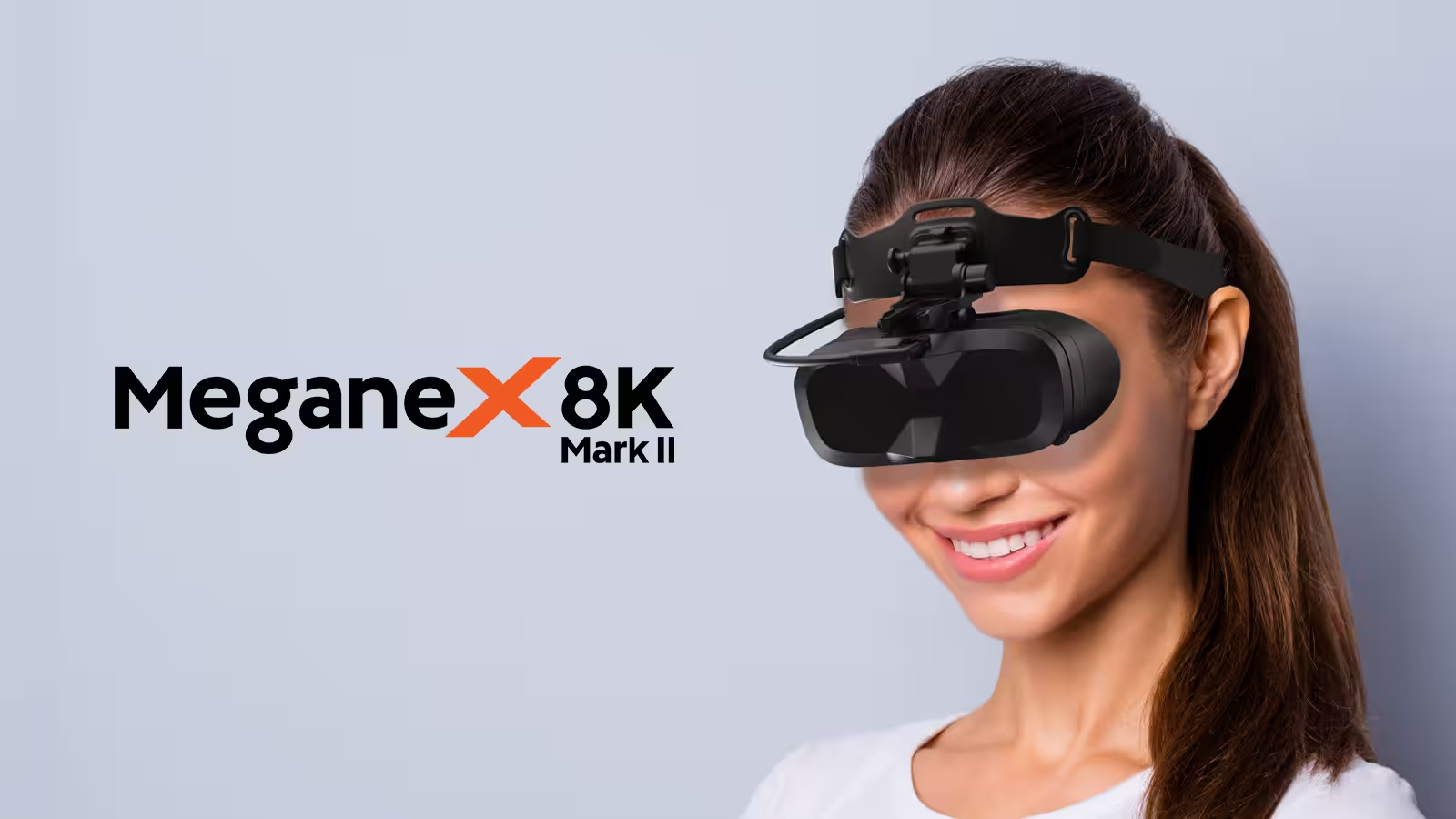The MeganeX 8K Mark II is a super-lightweight, ultra-high-resolution VR headset equipped with 4K micro OLED panels per eye and compatible with SteamVR™ tracking. This unique combination ensures unparalleled lightness and comfort, making it a top choice for VR enthusiasts. The 10-bit HDR-compatible 4K resolution micro OLED panels, driven at 90Hz, and the pancake lenses, newly designed by Panasonic Group, deliver deep blacks, exceptional color reproduction, and an immersive, world-class VR visual experience.



Still requires tracking towers/lighthouses, costs $1900, and doesn’t even come with them.
I think somehow people still haven’t figured out the two important things that make the Meta Quest so popular despite its many, many inherent drawbacks.
Edit: Oh, and also:
Yeah, that’s a big old nope from me, dawg.
Why is the Quest relevant here? This is obviously not competing with the Quest, and the reality is a company like Shiftall can’t compete with Meta in terms of price because they don’t have billions to burn like Meta. Making a Quest clone seems like a major waste of time.
If it exists in the consumer VR space, it’s competing with the Quest whether we like it or not.
But the Quest is a fully self contained device in the sense that you can take it out of the box and use it as-is, without requiring the purchase of any external bullshit, and you can use it anywhere without having to string said external bullshit all the place to make your play space permanent. Those are the two big important factors.
Never mind the delta in price between a thoroughly entry level versus a high end VR rig. I don’t think many of us (i.e. nerds) would care too much if a really good PCVR solution cost north of $1000 provided it did everything it said it did without a hassle attached. But for fuck’s sake, at this price point they could at least deign to include a basic set of lighthouses and a pair of OG Vive controllers in the box or something.
not directly, devices have different use cases. the quest while having good optics has a lower resolution and lower stereo overlap, it’s impossible to connect to pc without extra latency or compression artifacts, lower refresh rate. For a sim racer using a dedicated rig replacing batteries is a negative as well as the other drawbacks mentioned.
I think the fact that the only companies with good standalone tracking solutions are the ones who can burn billions on R&D (Meta and Apple) is telling of how difficult of a problem it is.
It seems like a pretty solved problem to me, being the owner of a Reverb G2 myself. There’s also the Vive Focus models, Pimax, Pico, and probably tons of others I can’t think of offhand.
Even so. $1900. No base stations in the box. Come on.
@Supreme @dual_sport_dork i’m not even sure if lighthouse-based vr setups still relevant in 2025. Yes, it’s still good for enthusiasts, but it’s expensive and poor for consumer’s usage comparing to standalones. And it’s even not open-hardware, so it’s not even good for opensource enthusiasts
I feel like you answered your own question. “Yes, it’s still good for enthusiasts”. This is an enthusiast headset so the choice does make some sense.
This is high end PCVR so it is not going to be a price leader.
I’m not asking it to be, but for a “high end” rig how come it’s not even complete out of the box? Even the dinky old WMR setups managed to come with controllers, and had inside-out tracking as well.
The reason is they did not have controls built yet. Their Grip vr controllers are rolling out soon. Also these headsets are sold to Valve index owners as an upgrade to their current headset.